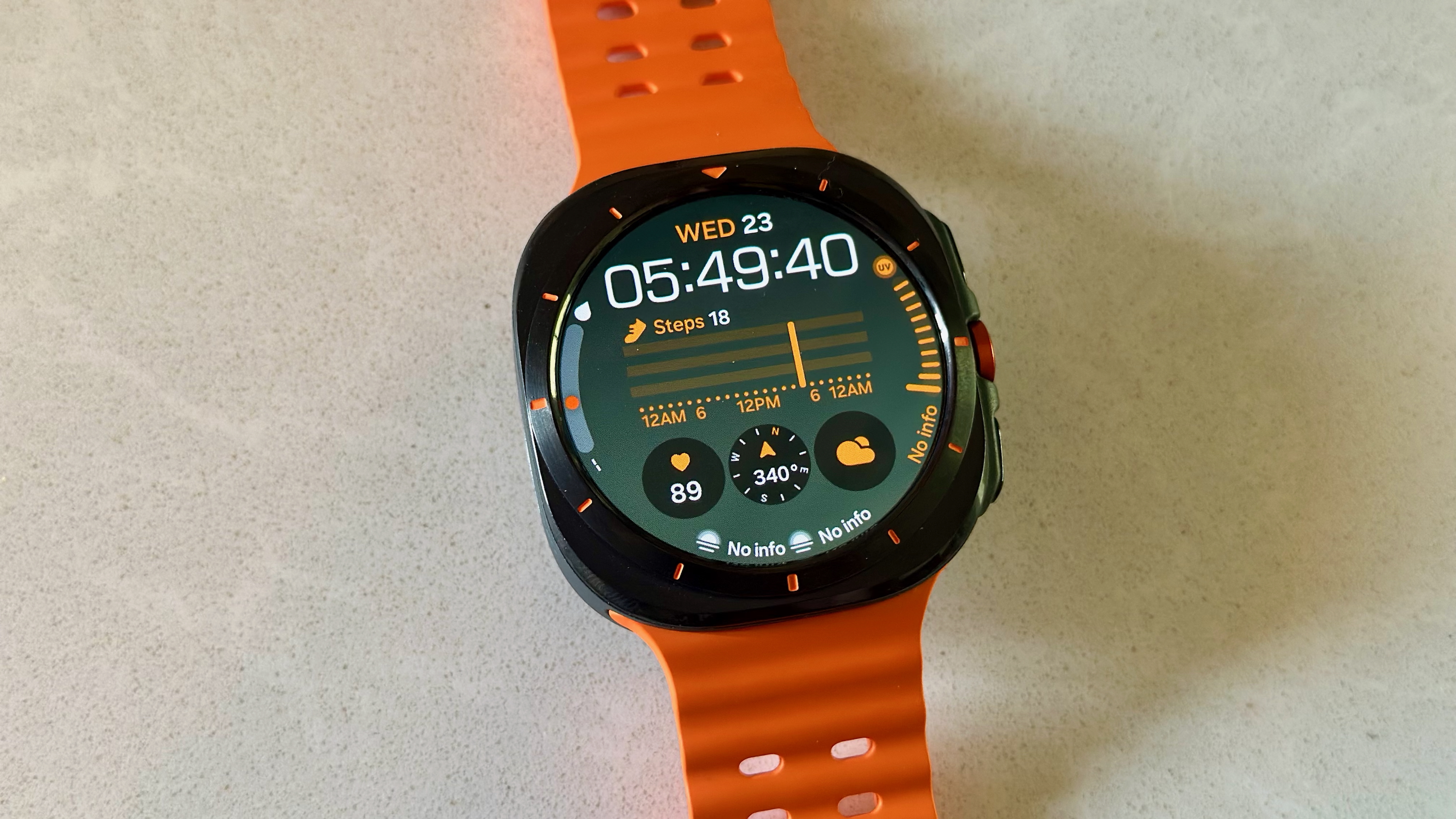Loyalists might buy a 5G BlackBerry — but don't expect a keyboard revival
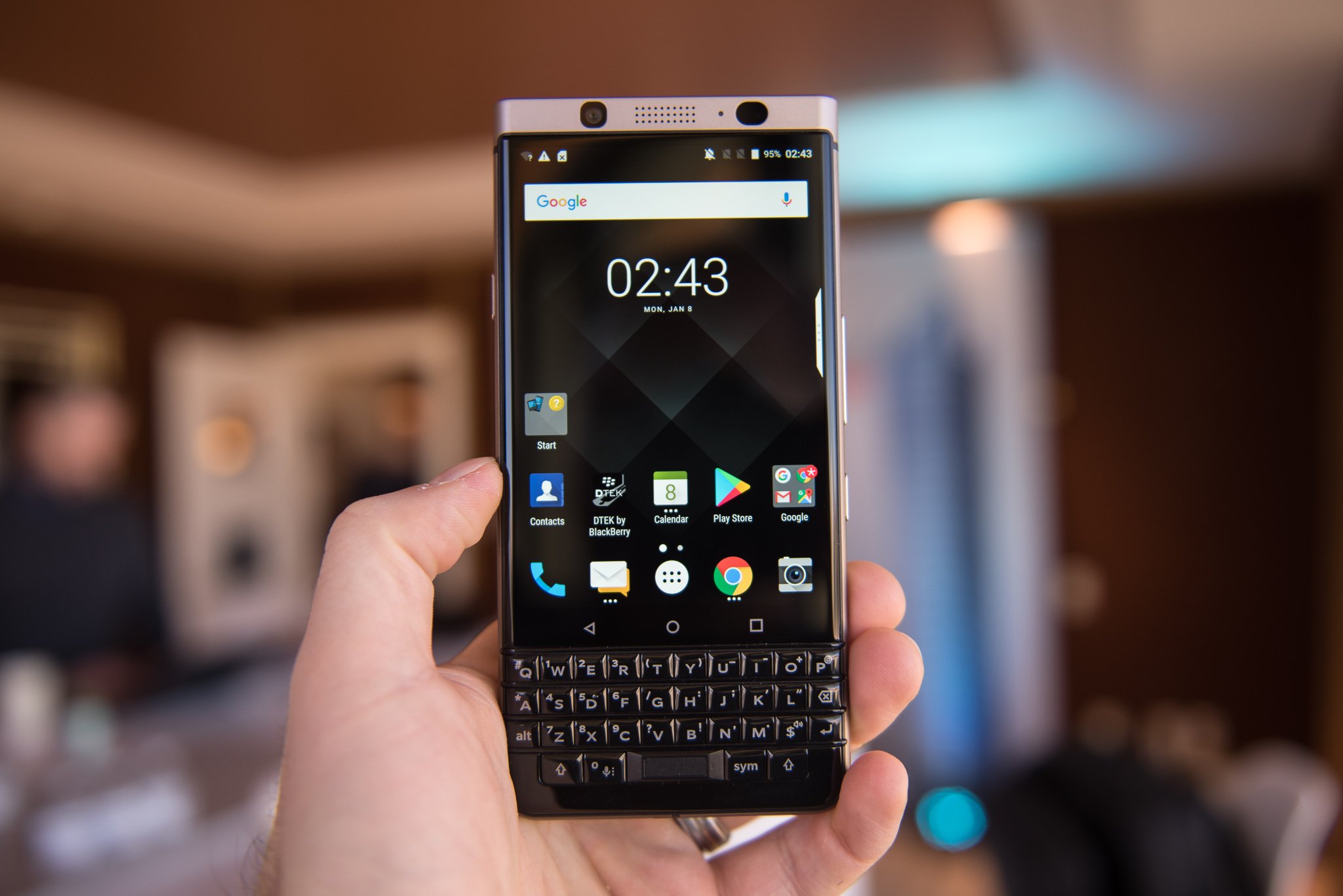
The lingering legacy of BlackBerry is the reason its cult following is obsessively interested in OnwardMobility's forthcoming 5G BlackBerry device, experts say. Adding those craving a physical keyboard to fulfill their nostalgia will help successfully sell the phone, but that won't be enough to bring back the physical keyboard as a staple design in the smartphone market.
Talk of the new 5G BlackBerry device with a physical keyboard began last year when the company's licensing agreement with OnwardMobility was reported, signaling yet another return for BlackBerry phones. However, the phone would be a niche device, especially in the flagship segment, and it probably wouldn't succeed against the likes of the best Android phones.
The announcement came months after the Canadian company's partnership with TCL ended, seeing sales of its devices come to a halt. At the time of the announcement, BlackBerry's CEO John Chen said the company was thrilled to work with OnwardMobility to "deliver a BlackBerry 5G smartphone device with physical keyboard leveraging our high standards of trust and security synonymous with our brand."
OnwardMobility said the phone was expected "in the first half of 2021 in North America and Europe," but no device has been released yet, nor have potential designs or specs been leaked.
In the midst of figuring out whether or not the phone was going to actually be released, OnwardMobility released on July 26 a "Pre-Commitment Program" for customers interested in the upcoming Android device. The program lets fans get first dibs on updates on the device, its features, and availability.
BlackBerry 5G will bring back the 'warm and fuzzy' feelings
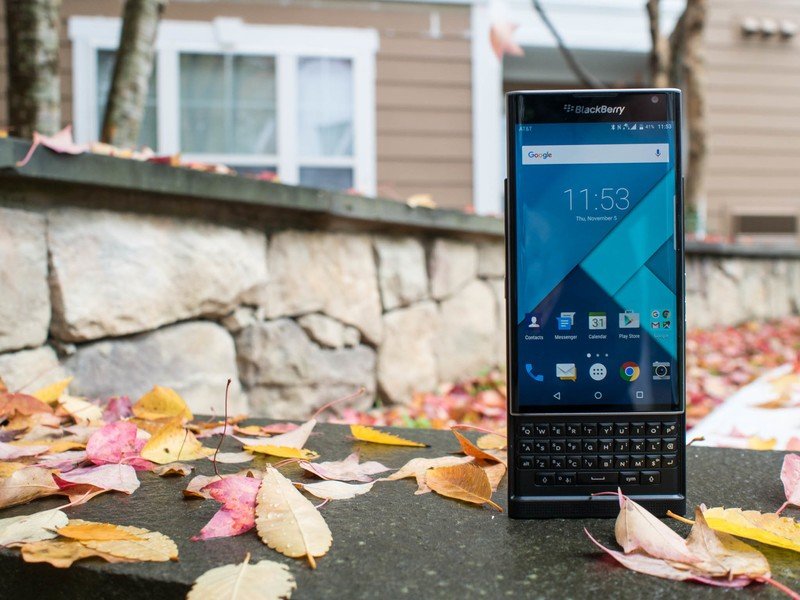
Kevin Michaluk, former chief media officer of Mobile Nations (which owned Android Central before being acquired by Future PLC in 2019), said in an interview that it is unlikely billions of people are going to give up touchscreens, and realistically OnwardMobility will probably sell to the very niche audience that is BlackBerry obsessed.
"There are people for whom BlackBerry was probably their first smartphone back in the day. They had more than one of them. It happened at such a time where your smartphone was now connecting you in a way that just never happened before," he said.
Get the latest news from Android Central, your trusted companion in the world of Android
Michaluk, better known as the founder of CrackBerry under his now-retired blogging moniker CrackBerry Kevin, said that people have always loved the devices and that sense of nostalgia holds strong to many people.
"You just had this relationship with (BlackBerry), and I think those warm and fuzzy feelings and memories are (still) strong today," he said.
Carmi Levy, a technology analyst, agreed with Michaluk that BlackBerry wasn't simply about a device but rather a lifestyle.
"You just had this relationship with (BlackBerry), and I think those warm and fuzzy feelings and memories are (still) strong today," Kevin Michaluk said.
"It was a brand, a culture, a statement. When high-powered business types pulled their BlackBerrys out of their coat pockets, they were signaling to others that they had power and influence," he said.
"It may be difficult to appreciate now that iPhones and Android devices are ubiquitous, but at its apex, the BlackBerry was the ultimate example of the boardroom and corporate gravity, and those who brandished them were looked up to by those who still owned lowly old basic cellphones."
I remember owning my first BlackBerry, and despite only being 21, I thought I was a high-powered, badass businesswoman. I remember everyone around me was on BBM, and if you weren't on it, you were basically out of contact range with many friends and family — kind of like iMessage today.
I've recently been re-watching HBO's Entourage, and every person on that show has a BlackBerry, too.
"
Owning a BlackBerry phone was (and to many still is) synonymous with being a hot-shot, busy, on-the-go professional, and clicking away on a physical keyboard almost made that persona so much more believable. It's like a statement; the louder and faster you typed, the busier you were.
Levy added that nostalgia is a "powerful consumer force," and companies often exploit the "retro vibe" among consumers who pine for simpler solutions.
Chrysler's PT Cruiser, for example, struck a nerve among a certain demographic despite the fact that it was based on the far more modern and pedestrian Neon subcompact. It looked the part, which was enough for some consumers who remembered what wagons had looked 40 years before. It was so successful that Chevrolet hired the same designer and had him pen the similarly-retro HHR wagon."— Carmi Levy, Technology Analyst
But Levy noted that there just aren't that many fans that will translate to actual consumers "pulling out actual credit cards to buy actual devices" from OnwardMobility. He said we'll only know that once the phone emerges from the shadows and introduces an actual product.
Keyboards will never dominate, but there will always be a market for it

Android Central recently did a poll resulting in an overwhelming number of people (76.8%) who would buy the unreleased 5G BlackBerry device. And while we have no idea what the phone will look like, many readers indicated they want a phone that looked like the BlackBerry Bold or even a Priv-style device but updated with the latest OS.
It should be noted that the Canadian company had a long journey to incorporate Android into its phones. The Passport, released in 2014 to a huge mix of reactions, was the first phone to allow users to download Android apps. But it wasn't until 2016 when the company released the Priv, its first Android device built by the company. That phone also marked the beginning of the end for its own mobile platform.
That same year, BlackBerry announced it wasn't able to afford to keep its hardware division running, in turn, handing over its license to TCL, which released the KeyOne and Key2.
Android Central reached out to OnwardMobility to comment on this article, but a company spokesperson said they were "unable to share more details or conduct any interviews."
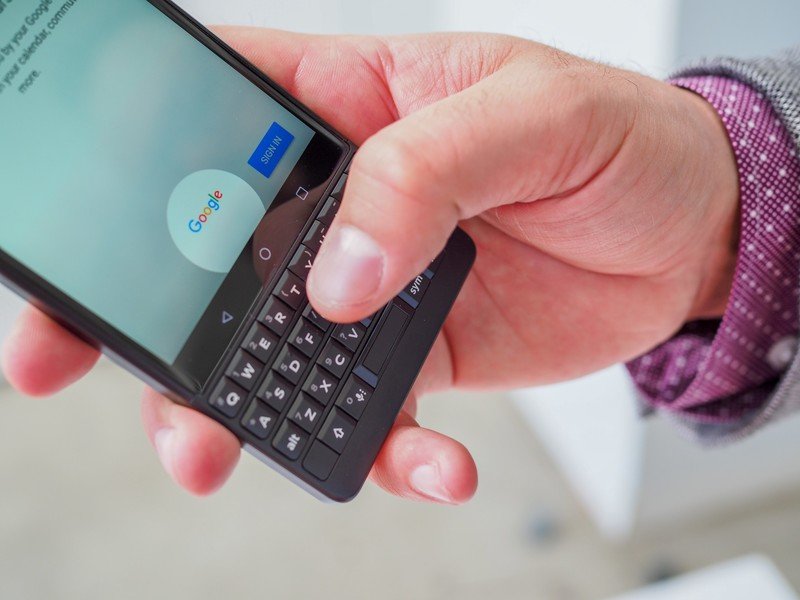
Whatever the phone looks like, experts have indicated that there will always be a market for keyboards.
Levy doesn't think we'll ever see keyboards dominate the market to the degree they did when BlackBerry ruled the planet, but because the smartphone market is large enough, there is room for other styles.
The failure of TLC's BlackBerry-labelled KeyOne and Key2 phones to achieve any sort of market traction isn't necessarily a rejection of physical keyboards by the broader market. Rather, it's a recognition that for the price, these devices didn't offer anything unique, and having a physical keyboard often meant making compromises - an odd-aspect-ratio screen that didn't run many apps properly, a camera that fell far short, mid-range processing power in a flagship-priced device, etc. - that consumers simply weren't willing to put up with."— Carmi Levy, Technology Analyst
Michaluk agreed, adding that there's a strong case for many people who would want to have a physical keyboard. Whether it's because you're a little older and your fingers stumble a bit more or because you're typing while walking or in a bumpy environment, he noted that a market is there.
"But if you grew up on touch screens, to pick up a physical keyboard probably feels alien and not necessarily compelling because you're working harder and it can be a little louder," Michaluk said.
"But if you grew up on touch screens, to pick up a physical keyboard probably feels alien and not necessarily compelling because you're working harder and it can be a little louder," - Kevin Michaluk said.
Anshel Sag, a senior analyst at Moor Insights & Strategy, agreed with Levy adding that the size of the smartphone market is large enough that there will always be a need for differentiation and "having a hardware keyboard is another opportunity to be different."
But for OnwardMobility's phone, it's not just about a keyboard. Instead, the company is riding on the fact that the phone will be 5G-enabled, which is necessary as many parts of the world enter the next generation of wireless technology.
Sag explained that while BlackBerry has "a loyal following of people who enjoy two-thumb typing and enjoy the tactile feel of hitting buttons when they type," the 5G component "brings BlackBerry back into the fold."
Will the phone actually have BlackBerry software? Will it run Android 12?
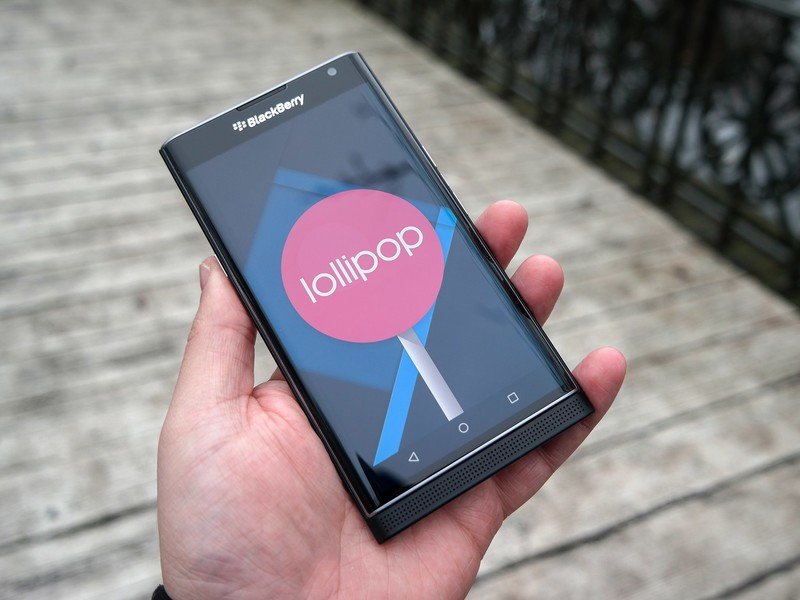
Because no one actually knows what the phone looks like, there have also been rumors on whether or not the phone will actually have BlackBerry software.
"The number one rumor that I want to address is that we don't technically know, as of yet, whether or not they're actually going to be utilizing BlackBerry software," Chris Parsons, the executive editor of CrackBerry, said in an interview, explaining that in the past BlackBerry used their own software when making phones, but that wasn't exactly the case during its partnership with TCL.
The problem OnwardMobility will have, Parsons said, is if they try to use BlackBerry's software, some applications might not be compatible with Android 12.
Some of the Android applications like BlackBerry Hub, which is a hugely popular app for BlackBerry users (on Android), haven't been updated (in years). So if they want to use that, it's not even compatible with Android 12. So if this company is apparently supposed to (release) an Android 12 device, or even an Android 11 device presumably, we should start seeing some update cycles directly from those apps."— Chris Parsons, executive editor CrackBerry
Parsons said it comes down to whether OnwardMobility will follow BlackBerry's guidelines and create a phone similar to the Priv, or build out their own software and just stick to a BlackBerry label.
Security will still be paramount
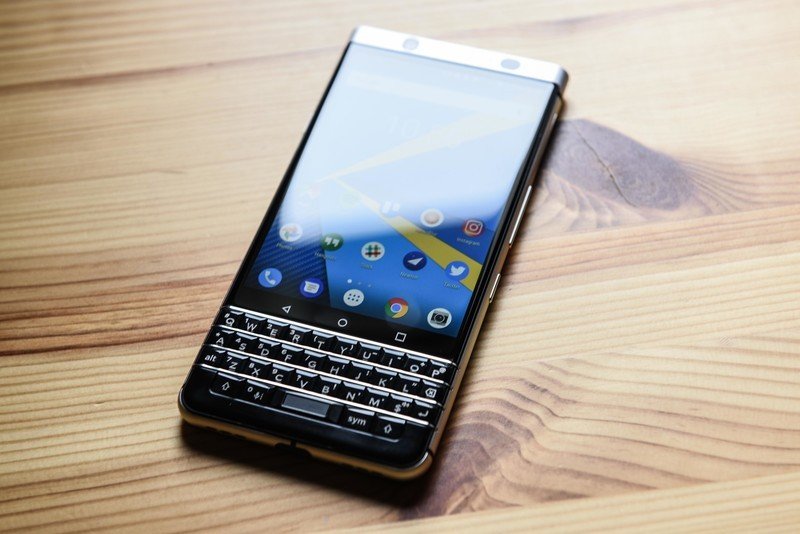
BlackBerry's commitment to protecting users' data and privacy has always been paramount, Parsons noted. He added that the new 5G phone will likely be marketed to security professionals and businesses where privacy is critical.
"Government officials are big users of BlackBerry devices, (and) I know that for a fact there's plenty of banks still utilizing BlackBerry devices," he said.
Without knowing what exactly OnwardMobility will do, Michaluk is convinced that the company will do right to BlackBerry's legacy. In an interview with executives at the company, he said that OnwardMobility was very aware of what TCL did during its partnership time and knew that they couldn't use the same playbook.
"I think (OnwardMobility) wants to do right. (They) know the community and want to do right by whatever product they bring to the market," he said, adding that the company wants to focus strongly on security.
"With BlackBerry, you can say, 'Yes, we're known for keyboards, but we've always been known for our security, too.'"

Shruti Shekar is Android Central's Editor-in-Chief. She was born in India, brought up in Singapore, but now lives in Toronto. She started her journalism career as a political reporter in Ottawa, Canada's capital, and then made her foray into tech journalism at MobileSyrup and most recently at Yahoo Finance Canada. When work isn't on her mind, she loves working out, reading, watching the Raptors, and planning what she's going to eat the next day.
